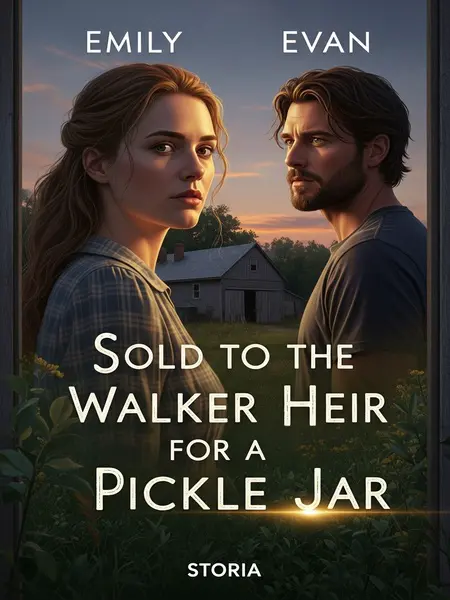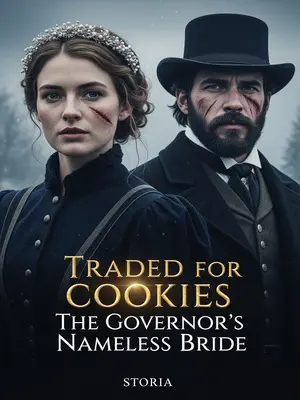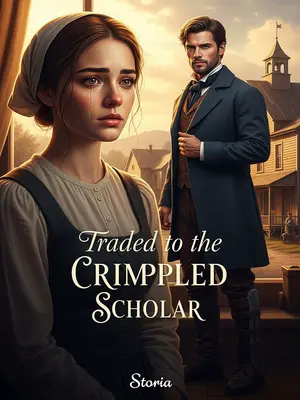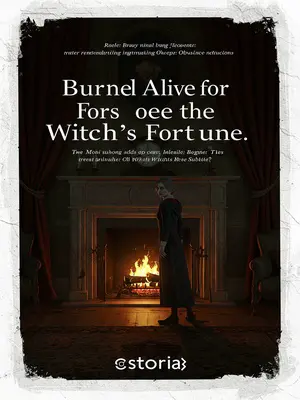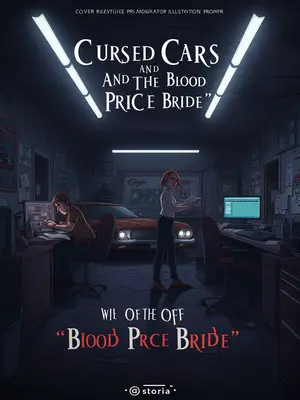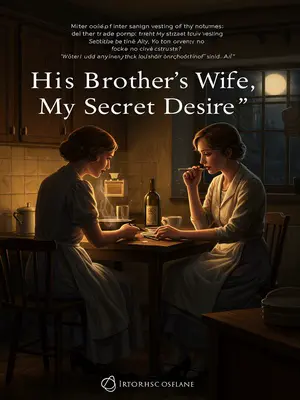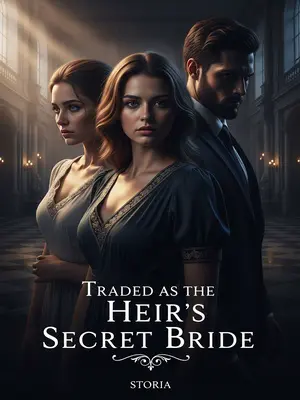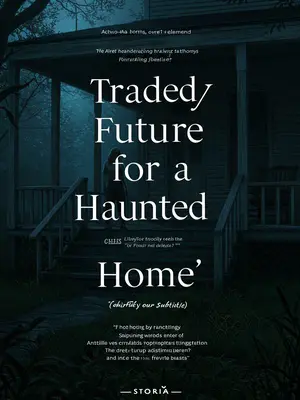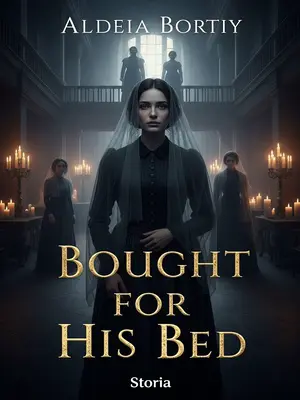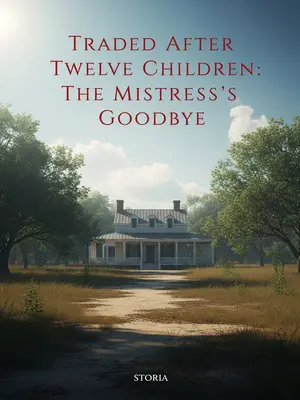Chapter 2: The Weight of Empty Promises
Charlie blocked the path of the pickup, dust swirling up around his boots, unable to help but plead for his boss, Evan Walker:
"A few days ago, Evan ordered several bolts of red satin from Mr. Lee at the fabric store, and even sent someone to Atlanta to pay a high price for a batch of imported wine. Isn’t that clearly for marrying you, miss?" He glanced over his shoulder, voice low like he didn’t want the Walters folks to overhear.
Seeing I didn’t reply, Charlie rose on tiptoe and pointed at the jar in my arms, his eyes wide and a little desperate:
"Didn’t Evan say, when you fill the jar, he’ll marry you and bring you home? Now that the hard days are over and the jar is finally full, why are you leaving, miss?" His voice wavered on the last word, as if hoping I’d turn back any second.
I thought for a moment and wondered if maybe I was being a little stubborn. The wind kicked up dust along the road, carrying with it the scent of hay and distant rain. I chewed the inside of my cheek, thinking about all the silent meals and hard stares that made up my last year at the Walkers'.
A year ago, when I arrived at the Walker house, it was dinnertime. I was thin and small, wearing hand-me-downs with a too-short hem and sneakers two sizes too big. Afraid of being looked down on, I glanced at the food on the table—fried chicken, mashed potatoes, green beans slick with bacon grease. The casserole dish still steaming, the scent hitting me like a memory of every Sunday supper I’d ever wanted—and lowered my head, swallowing hard. Hunger twisted in my stomach, but pride kept me in my seat.
Evan Walker looked at me with utter disdain and reflexively told Charlie to toss me out like a stray. He said it like he was ordering someone to sweep dust off the porch, as if I were something you could just brush away. My cheeks burned.
Mr. Walker put down his fork—slow, deliberate—and really laid into him, saying that when the Walkers had to leave Oklahoma during the Dust Bowl, if not for a kind stranger giving Grandpa a meal, there’d be no Evan Walker today to look down on me. His voice was gravelly and sharp, each word landing heavy on the kitchen air.
Mr. Walker told me straight that since it was a family debt, the Walkers wouldn’t turn their backs. He looked me square in the eyes—blue and weathered from years in the fields—and told me I was family, like it or not.
But seeing Evan’s look of disgust and his crisp, expensive shirt—buttoned up tight, the collar starched so stiff it looked like it might snap—I hesitated. I felt small and invisible, like the scuffed linoleum underfoot.
Otherwise, maybe I should just forget this marriage; turning Evan Walker into toast would be fine too. I pictured it—his face turning beet red at the thought of being bested by a girl from nowhere, all his arrogance collapsing like a bad soufflé. For a second, I almost smiled.
But before I could speak, Evan averted his eyes in disgust, suddenly noticing the empty pickle jar on the table, and sneered:
"I can marry you, but there’s no reason for you to mooch off my family, and expect us to provide a dowry too, right? I won’t make it hard for you. As long as you fill this jar, I’ll marry you. If you’re not willing, it doesn’t matter anyway. The Walkers won’t give you a wedding dress or a fancy ride." His words echoed off the walls, cold as ice cubes rattling in a glass.
His eyes were full of mockery, as if I were a freeloader coming to the Walkers for a free meal under the guise of marriage. The whole table went silent, forks pausing mid-air, tension thick as old honey.
Well, he really underestimated me. He didn't know I was raised by the kind of women who keep going even after everyone else has given up. I’d been patching up holes in my own socks since I could thread a needle.
I’m not someone who just sits around and expects a handout. The world doesn’t hand you anything for free, and if it does, you’d better look twice before taking it.
I can wash clothes and cook, weave baskets and mend shoes, embroider and paint signs—anything. If there’s a job to be done, I’ll do it, even if it means waking before dawn and collapsing after midnight.
I’m skillful and hardworking; I can make a good life. My aunt used to say I could stretch a dollar further than a yard of feed sack. Pride is cheap, but it’s better than nothing.
Hugging that little pickle jar, I looked Evan Walker in the eye. My voice didn’t shake:
"It’s a deal."
I thought the jar was small and would be easy to fill. I thought I could knock it out in a couple months—maybe three, if I was lucky. Hope is a stubborn thing; it keeps you moving long after your body wants to quit.
At first, I stayed up for half a month, sketching embroidery patterns and tying friendship bracelets for others. The money quickly covered the bottom of the jar. The clink of coins was like music, each drop a small victory.
But most of it was taken by Charlie. I caught him one evening, sheepish and red-faced, scooping out the change with calloused fingers.
Hugging the jar that clinked with just three quarters, I went to ask Charlie, but those coins were by Evan’s desk—right in the open, as if daring me to ask. The afternoon light fell across the cluttered desktop, catching on the silver edges of the coins.
Evan was out on the back porch, listening to country music and shooting the breeze with a bunch of his buddies from down the road, the kind who never brought anything to a potluck but always showed up hungry. They lounged in the rickety chairs, talking big and laughing too loud, the kind of laughter that feels like it’s at your expense.
Charlie knew I often stayed up late working and didn’t dare look at the dark circles under my eyes. He kept his voice low, almost apologetic:
"Evan said, you eat and live at the Walkers’, and besides room and board, there’s also the cost of electricity, paper, and ink…"
In the April sunshine, Evan leaned against the porch rail, carelessly picking up a mug and looking at me. He had a smirk playing at his lips, like he knew he was pushing my buttons:
"You think you can just eat and drink for free before even marrying in?"
Suddenly thinking of something, Evan grinned, all mischief:
"Or are you just so desperate to marry me you can’t wait?"
Hearing his teasing, those good-for-nothing friends openly stared and laughed at me:
"Evan’s such a catch—if I were a girl, I’d marry him myself."
"A young woman’s got her dreams; now the nights are warm and days are long, perfect for cuddling up with someone."
These words put Evan in a good mood. He pointed at the pile of coins I’d earned with hard work:
"Well said. Take this money and buy some beer."
When he gave away my hard-earned money, Evan looked at me leisurely, wanting to see anger and embarrassment on my face, hoping to make me cry. He seemed to savor the moment, as if putting me in my place was some kind of sport.
But he was wrong. When I get stubborn, I neither cry nor make a fuss. Poor people want to keep their dignity too, and I wasn’t about to let him see me flinch:
I hugged the jar to my chest, knuckles white, and blinked hard, refusing to let the tears win. "Then every napkin and crumb, every bit of rent and food at the Walkers’, please trouble Evan to write a detailed list for me. I want every nickel and dime accounted for, Evan. Fair’s fair. I believe Evan’s a real man and won’t pick on his own fiancée."
After that, saving money became very difficult. I started keeping receipts in a shoebox, tallying up every nickel spent on bread or soap, determined not to owe them a single cent more than necessary.
Breaking ice to do laundry in winter, weaving baskets and mending shoes in summer. Ice shards and splinters left old and new wounds on my hands. When I was stubborn, the pain was bearable. I wore the cuts and bruises like armor, proof that I could endure whatever the world threw my way.
But eating at the Walkers’, there were always pies and cakes, so fancy I’d never seen their like. But they cost a lot. I couldn’t afford them. Sometimes the smells would drift through the house, sweet and buttery, making my mouth water. Still, I forced myself to chew slow and leave the table hungry.
The scent of cinnamon and sugar hung in the air, taunting me. I’d never had anything so rich—my mouth watered just looking at the golden crust. Evan always tasted a bite and then tossed them out in front of me. When he saw me craving, he would mock me bluntly:
"Emily, I’ve seen plenty of girls like you. Lazy and greedy, just looking to marry into money but acting like you’re above it all."
These words made me feel ashamed and my face burn. I stared at my plate, wishing I could shrink small enough to disappear.
When I lived with my aunt, I was used to being hungry, always working a lot but never having enough to eat. I’d listen to the radio at night, my stomach growling, counting the hours until breakfast.
One autumn, after mowing lawns all day, I came home to find no one had left me a bite of dinner. So I stole half a cold biscuit from my younger brother and was subjected to my aunt’s sarcasm and snide remarks for three days. Every word was a pebble in my shoe, sharp and impossible to ignore.
She said the cicadas on the tree were lazy and greedy, shallow, and only knew how to make noise all day. She had a way of making you feel small without even raising her voice.
I didn’t know how to answer her. I just kept my head down, knuckles white around my fork.
Because I really did want to stay at the Walkers’. Even with all the cold shoulders and rough words, the idea of belonging somewhere tugged at me like a warm quilt on a cold night.
Maybe, maybe I really am lazy and greedy. Maybe all I want is a little comfort, a place at the table where no one asks why.
Winter is too cold; I want a bite of hot pie. I’d watch the steam rise from the pan and dream about a life where hunger didn’t gnaw at my bones.
Summer is too hot; I want to rest and drink a cup of sweet tea. The idea of porch swings and lazy afternoons seemed like something out of a storybook.
In the end, it’s all because I’m lazy and greedy, foolishly longing for a good life. I thought if I worked hard enough, maybe I could earn it—maybe I was wrong.
Actually, ten days ago, the jar was already full to the brim. My good days were just about to begin. I’d held it up to the window, sunlight glinting off every coin, and felt pride bubble up in my chest.
But then a thief came into the room. The jar was lighter when I woke, and the world seemed a little meaner for it.
I knew very well who the thief was. I’d seen the guilty glance, the way someone looked anywhere but at me when I walked by.
Because only the very top layer of the jar’s money was stolen; most was left for me. It was almost thoughtful, in a cruel way—a reminder that nothing is ever truly yours.
"Why not steal it all?" I asked quietly, words barely more than a whisper, but the question hung in the air like humidity before a storm.
At that time, Evan lay on a lawn chair in the backyard, a book covering his face as he pretended to nap guiltily, not daring to look at my reddened eyes. The sun painted warm stripes across his shirt, but he seemed smaller than usual, almost boyish in his guilt.
"That thief is as shallow as you, isn’t that enough?" he mumbled, voice muffled by the pages. He wouldn’t meet my gaze, and for once, his arrogance seemed to falter.
Thinking I’d left, he peeked carefully from under the book and saw me sitting under the grape arbor, hugging the jar and wiping my eyes hard. I tried to be quiet, but my shoulders shook. The garden was filled with the smell of dirt and wild mint, the grape leaves rustling overhead.
Feeling guilty, Evan brought a delicate piece of pound cake to me, uncharacteristically softening his tone to coax me:
"Hey, this is for you, you don’t need to pay, just stop crying. That money—maybe when the thief thinks it over for a couple of days, he’ll bring it back to you."
I ignored him, picked up the pickle jar, and left without a word. Sometimes dignity is all you’ve got, and I wasn’t about to give that up, too.
Charlie mentioned this, hoping I’d remember old feelings:
"At first, he was going to take it all, but Evan hesitated and put most back, only taking a small handful. Actually, I could tell, Evan already liked you, but he’s always been stubborn and hasn’t come around yet, unwilling to admit it. So he took your money, wanting to drag it out a few more days, and when he figured it out, he’d marry you…"
Seeing I didn’t speak, Charlie felt a glimmer of hope:
"Besides, that Walters family is really poor, can’t even afford food, and the truck is borrowed with money pooled together."
The truck’s engine rattled, drowning out the sound of my heartbeat. He said the Walters family was poor. But I could see with my own eyes how hard they’d tried—the truck gleaming in the last rays of sun, the bells shining, the seat newly covered in faded denim stitched up with love and hope. Sometimes, care means more than coin.
But the pickup before me, its four-cornered bells were spotless. The soft seat inside was new, the stitches messy but tight, clearly done with care. At dusk, the wind blew, and the bells chimed, pleading for the Walters family’s son. It sounded like the kind of promise you’d hear in a church hymn—simple, honest, and true.
It’s alright, I just happened to save some money too. I pressed my palm against the lid of the jar and closed my eyes for a second, letting myself believe things could be different.
Hugging the small, full pickle jar, I sat in the soft pickup bed. The metal was warm against my legs, and the world looked brighter out the back window.
Charlie was so anxious he was about to cry. He wiped his eyes on his sleeve and tried one last time:
"Then, when Evan comes back, how can I explain?"
I looked down at the pickle jar, glanced at the tinkling bells outside, thought for a moment, and smiled—a real, wide grin that felt like freedom:
"Just tell him Emily left for a shinier ride. Guess I always was a sucker for a good set of wheels."
As the truck rattled down the gravel drive, I pressed my forehead to the cool glass, listening to the bells and wondering if I’d just traded one kind of hunger for another.
